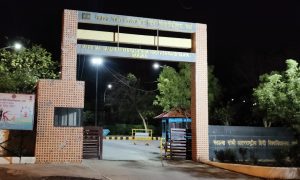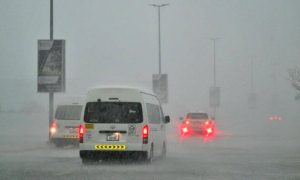Ministry of Education formed the National Steering Committee for the development of the National Curriculum Frameworks on Tuesday, September 21. Dr. K Kasturirangan, former Chairman of ISRO, will chair the Committee.
Under the new National Education Policy, 2020, school students will study under a new curriculum, as announced by PM Narendra Modi. With the formation of the Committee, the Government has begun the process to revise NCERT textbooks, taught in CBSE-affiliated schools across the country.
What is National Steering Committee?
The National Steering Committee provides general policy, strategic directions/ advisories for the implementation, protection of interest of stakeholders, and provide overall supervision regarding the programme or initiative.
The Committee will be responsible for drafting the document that will lay down the guidelines for changes in the curriculum.
The tenure of the National Steering Committee will be three years from the date of its notification. The Committee will be chaired by former ISRO Chairman, Dr. Kasturirangan who headed the Indian Space Research Organisation (ISRO) from 1994 to 2003. He was also the Chairman of the Drafting Committee of National Education Policy (NEP), 2020.
Other members of the Committee include –
- Mahesh Chandra Pant – Chancellor of NIEPA (National Institute of Educational Planning and Administration)
- Govind Prasad Sharma – Chairman of the National Book Trust
- Najma Akhtar- Vice-Chancellor of the Jamia Millia Islamia University
- T V Kattimani- First Vice-Chancellor of Central Tribal University of Andhra Pradesh (CTUAP)
- Michel Danino – Author, guest professor at IIT Gandhinagar
- Milind Kamble- Chairperson of IIM, Jammu
- Jagbir Singh- Chancellor of the Central University of Punjab, Bathinda
- Manjul Bhargava – American mathematician of Indian origin
- M K Sridhar – he served as a member of a Committee for draft National Education Policy under the chairmanship
of Dr. K Kasturirangan. - Dhir Jhingran – Founder Director of Language and Learning Foundation (LLF)
- Shankar Maruwada- Co-founder and CEO at EkStep Foundation
What is National Curriculum Framework?
National Curriculum Framework provides insights and perspectives from the National Education Policy and is prepared at the national level. It provides direction to the school curriculum.
The National Curriculum Framework is centered around constitutional values, scientific temper, the struggle for freedom and national priorities envisioned from time to time. It includes research-based recommendations on curriculum, pedagogy, assessment, and examination that serve as broad guidelines for the entire school education in the country.
Till now, four curriculum frameworks have been brought out – in 1975, 1988, 2000, and 2005. Further, in 2009, the Right of Children to Free and Compulsory Education Act mandated all States / UTs to implement the National Curriculum Framework.
At present, the National Curriculum Framework of 2005, approved by the Central Advisory Board on Education (CABE), is the latest framework in the country, and is based on 10+2 system of education. However, NEP 2020 incorporates 5+3+3+4 system of education and the new National Curriculum Framework will be as per NEP 2020.
The NEP 2020 recommends reconfiguration of curricular and pedagogical structure of school education to make it responsive and relevant to the developmental needs and interests of learners at different stages of their development, corresponding to the age ranges of 3-8, 8-11, 11-14, and 14-18 years, respectively.
Role of National Steering Committee in curriculum formation
The National Steering Committee, keeping in view the NEP 2020, would develop four National Curriculum Frameworks- namely the National Curriculum Framework for School Education, National Curriculum for Early Childhood Care and Education, National Curriculum Framework for Teacher Education, and National Curriculum Framework for Adult Education.
The Committee would also discuss the various aspects of School Education, Early Childhood Care and Education (ECCE), Teacher Education, and Adult Education as per the recommendations of NEP 2020 in the respective areas.
The Committee will also draw inputs from State Curriculum Frameworks and reflect upon the implications of situations like the COVID-19 pandemic in respective areas for the future.
The Committee to finalize National Curriculum Frameworks after incorporating suggestions received from various stakeholders, i.e., states/UTs and also in the meetings of Executive Committee (EC) and General Body (GB) of the NCERT and Central Advisory Board on Education(CABE).
Need for a new curriculum
The current curriculum in practice needs to be reworked to include the following –
-To enhance essential learning and critical thinking, inquiry-based, discovery-based, discussion-based, and analysis-based learning and to focus on key concepts, ideas, applications, and problem-solving.
-To adopt experiential learning including hands-on learning, arts-integrated and sports-integrated education, story-telling-based pedagogy, among others, as standard pedagogy within each subject.
-To empower students through flexibility in course choices particularly in secondary school – including subjects in physical education, the arts and crafts, and vocational skills.
-To promote multilingualism in education and make it a resource for developing a strong foundation for the student.
-To integrate curriculum of essential subjects, skills and capacities.
























 WhatsApp us
WhatsApp us
Pingback: sciences diyyala
Pingback: blote tieten
Pingback: niches youtube